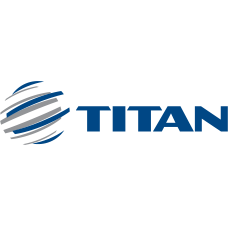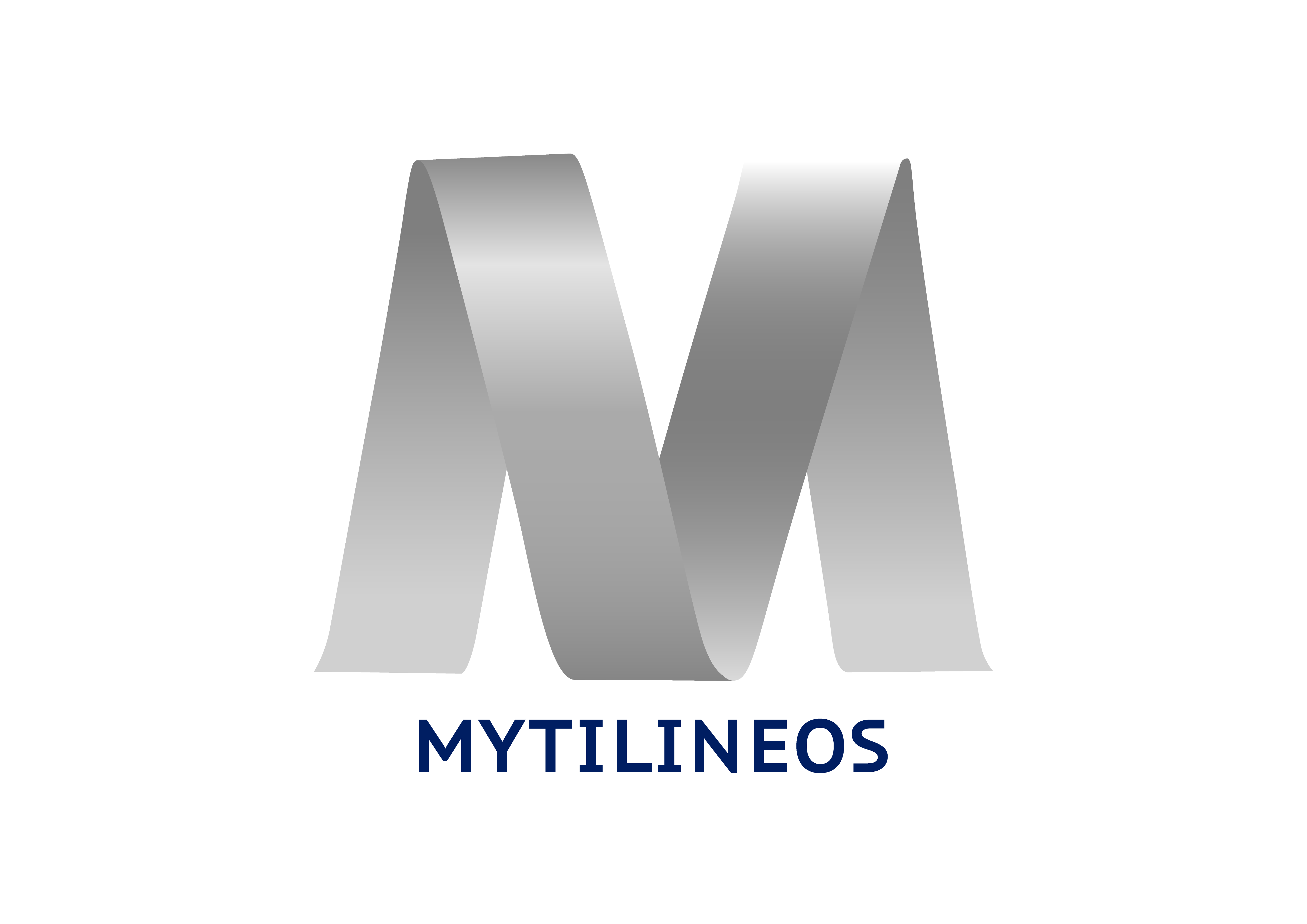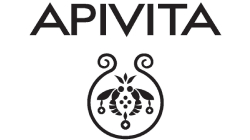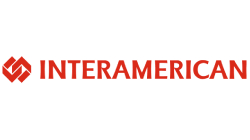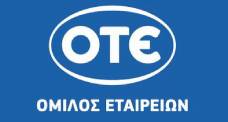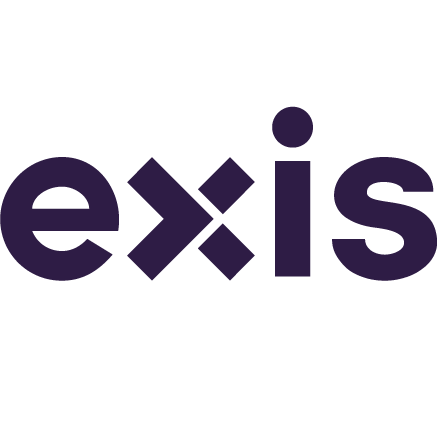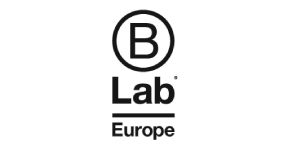LECTURES OF THE CSR SCHOOL 2020

11:30- 12:15 CET
Positivity for Sustainability & Growth: The role of positive emotions in fostering resilience and well being
By Dr. Anastasios Stalikas (Professor of Psychology, Panteion University of Social and Political Sciences)
Contents of the lecture
- Key concepts of Positive Psychology
- Research findings in Positive Psychology
- Strategies & Practices that foster sustainability, resilience and well being in organizations and in the community
- Positivity, meaning making and well being
Participants will:
- Be able to identify, define and describe the core concepts of Positive Psychology
- Critically evaluate the relationship between resilience and positivity
- Be able to apply methods, interventions and techniques that foster positivity and resilience
- Make connections between positive emotions, resilience and sustainability

12:15-15:30 CET
Setting the Frame
By Dr. Álvaro Santos Pereira (Director of the OECD Economics Department)
Contents of the lecture
- Current dimensions of globalization: Threats and opportunities.
- What is the recent impact of globalization on environmental and societal sustainability.
- What is the impact of current environmental and societal sustainability issues on economic growth.
- Prioritization of public policies.
- Coordination of public policies, e.g. environmental and/or industrial policies in accordance with health policies.
- How can we avoid domino effects on the international economy due to the COVID-19 pandemic.
- How can we make an opportunity out of the current crisis.

11:30-14:30 CET
The ethics of responsibility and practical wisdom
By Dr. Haridimos Tsoukas (The Columbia Ship Management Professor of Strategic Management, University of Cyprus Dean, Faculty of Economics and Management, University of Cyprus Distinguished Research Environment Professor of Organization Studies, Warwick Business School)
Contents of the lecture
Organizational tasks, roles, and responsibility. To perform a role responsibly is to address the question ‘what is it for?’ The teleological structure of activities. The implicit nature of the ethical demand and how it is discharged. Responsible action implies good judgment. The constituents of good judgment: character, emotions, and practical wisdom.
Participants will:
- appreciate the importance of responsibility across all tasks
- develop their ability to frame problems, choices, and weigh what is at stake in particular contexts enhance your self-knowledge
- sharpen their perceptual skills to recognize what is important
- refine their judgement and sharpen their practical wisdom
- develop complex capacity to handle ambiguity and complexity in challenging situations in organisations.


14:30-15:30 CET
Ethical Leadership Discussion Panel
By Mr. Dimitris Papastergiou (Mayor of Trikala, President of Greek Union of Municipalities), Dr. Polidefkis Loukopoulos (Chairman and Managing Director, Signify Hellas S.A.)

11:30-14:30 CET
Sustainable Value Creation
By Dr. Constantine Manasakis (Assistant Professor, University of Crete)
Contents of the lecture
- Introduction: Business as usual
- The business case of Sustainable Development Goals (SDGs)
- Strategic corporate responsibility and shared value towards SDGs
- Identifying material issues for a strategic corporate responsibility agenda
- Contents addressed for each material issue.
- From sustainable and shared value to responsible and sustainable business through sustainable competitive advantages
Learning objectives
- Highlighting the business opportunities and benefits of sustainable development
- Presenting the roadmap and the steps towards the development of a business responsibility action plan
- Presenting the structure of a business responsibility action plan and its link to administrative practices
- Demonstrate how business responsibility enhances corporate competitiveness
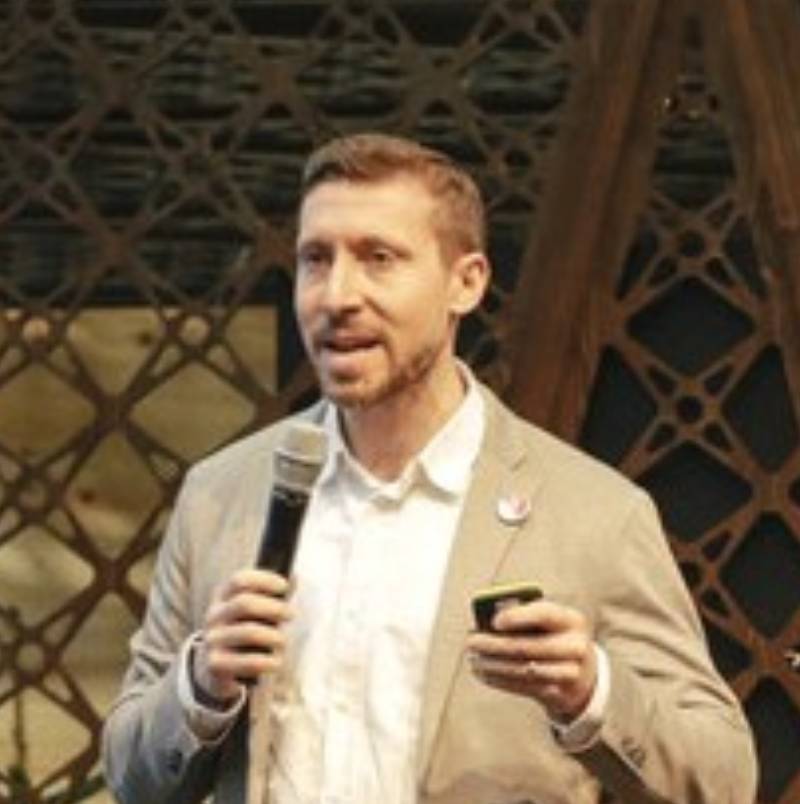
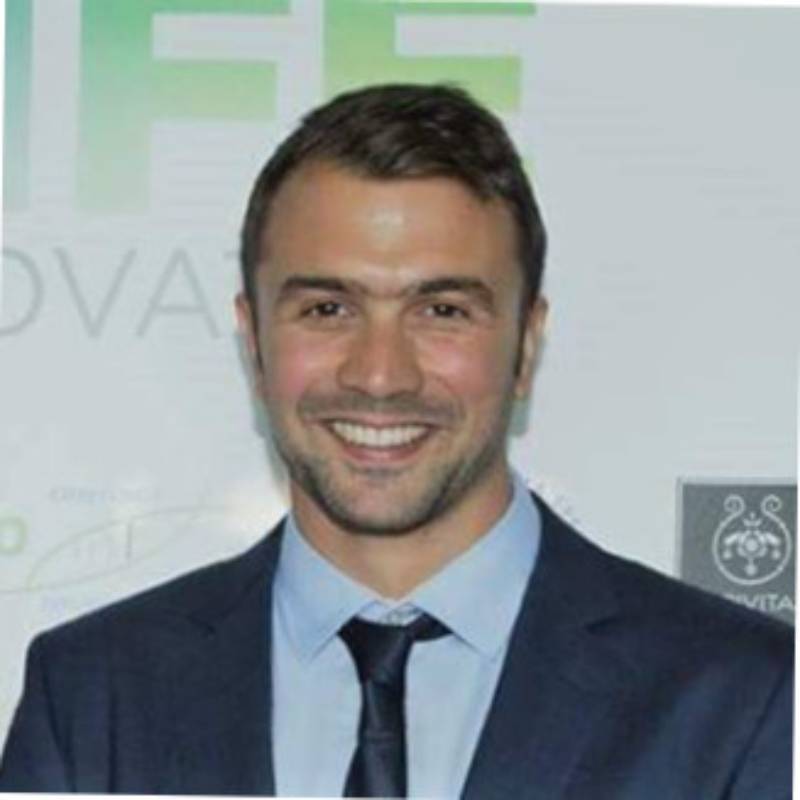

14:30-15:30 CET
Sustainable Value Creation Panel Discussion
By Mr. Nathan Gilbert (Executive Director, B-Lab Europe),Mr. Sotiris Pastras (Corporate Social Responsibility Manager, APIVITA SA), Mr. Anagnosti John Choukala (Head of Sustainability & Global Brand Ambassador, APIVITA SA)

11:30-13:00 CET
Linking Sustainability with Corporate Governance
By Dr. Dimitrios Koufopoulos (Director of the Global MBA Programs, University of London)
Contents of the lecture
- Corporate Governance (CG): Definitions, Issues and Challenges
- BoD: Theoretical Foundations, Roles & Responsibilities, Structure and Outcomes
- BoD, Diversity and Decision Making
Learning objectives – After the completion of the module, participants are expected to be able to:
- Understand the importance, the challenges and context under which boards operate
- Be aware of the main issues of Board Configuration and its main functions
- Critically reflect on the issues of Diversity (demographic and cognitive) in relation to decision making and outcomes (financial and non-financial)

13:00-14:30 CET
Linking Sustainability with Corporate Governance
By Dr. Alexandros Antonaras (Associate Professor and Vice President of Student Services, University of Nicosia)
Contents of the lecture
- ESG and the BoD
- Dealing with Sustainability at Board level
- Corporate Governance and Reporting
Learning objectives – After the completion of the module, participants are expected to be able to:
- Explain the relationship between Corporate Ethics, Corporate Governance and Sustainability
- Understand the importance of ESG criteria
- Understand the importance of dealing with Sustainability at the Board level
- Be aware of the Corporate Governance requirements by the major reporting standards (GRI, SASB, IR)
- Explain how ESG criteria can be linked with assessing performance

14:30-15:30 CET
Responsible Governance Case Study
By Ms. Katerina Katsouli (ESG & Sustainability Director,
Grant Thornton Greece)

11:30- 15:30 CET
Towards true sustainability in supply chains
By Dr. Anne Touboulic(Associate Professor in Sustainable Supply Chain Management at Nottingham University Business School, University of Nottingham)
Contents of the lecture
- From CSR to true sustainability
- Defining sustainable supply chain management
- Sustainability context: the urgency of addressing ecological and social challenges
- The importance of supply chain relationships for sustainability
- Governance and regulation of sustainability in supply chains
Learning objectives
- Gain an understanding of sustainability from both an ecological and social perspective
- Explore the link between sustainability and supply chain management through theory and practical examples
- Surface the key issues and debates related to sustainable supply chain management
- Advance their knowledge of relevant regulatory and voluntary approaches towards sustainability in supply chains
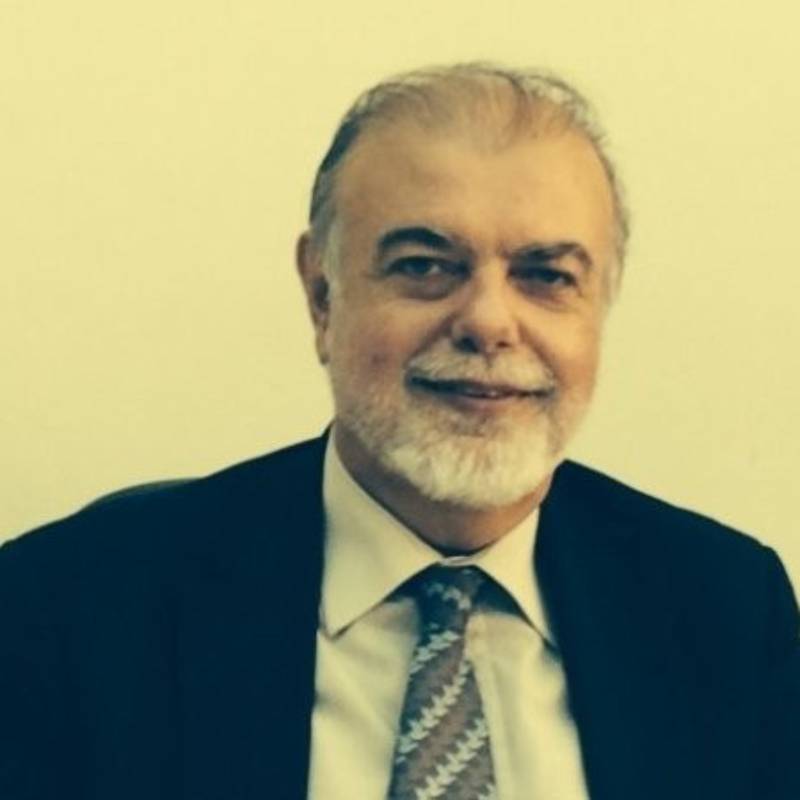
10:00-13:00 CET
CSR & the Environment: Not an Easy Issue!
By Dr. Michael Scoullos(Professor and Director of the Laboratory of Environmental Chemistry, University of Athens)
Learning objectives
- Climate change related risks’ against business continuity (emphasis on the most affected countries and industries).
- Consumers’ responsibility and raising awareness for climate change.
- Organizational changes and reengineering towards sustainability.
- Sustainable Consumption and Production concept and its value globally.
- Making the right choices while prioritizing adaptation options.

13:00-14:00 CET
Corporate Systemic Approach to Biodiversity and Land Stewardship
By Mr. Kostis Dragasakis(Group Quarries & Raw Materials Technology Manager, TITAN Cement Company S.A.)
- What is the role of business in protecting and restoring nature in the coming critical decade? Global trends (Aichi/CBD, EU Directive, EU Taxonomy), post-2020 biodiversity framework, partnerships/coalitions for a common goal to accelerate action on biodiversity for sustainable development
- What is the position of the cement industry towards biodiversity as a significant component for a sustainable world? The GCCA Sustainability Charter, new Biodiversity Policy, Guidelines for Quarry Rehabilitation and Biodiversity Management
- The Titan Group approach to biodiversity and land stewardship: Integration of biodiversity in corporate sustainability agenda and policies; risk assessment, development and implementation of management system, targets, monitoring and reporting. TITAN is present in the CSR Europe Network (‘Biodiversity & Industry platform’), and in the World Business Council for Sustainable Development (two projects: ‘Nature Action’, and ‘We Value Nature’)
- Biodiversity management in practice: historical review of Titan experience with land stewardship, quarry rehabilitation and biodiversity management; best practices and case studies; challenges (sustain the operating license), obstacles (technical, legislative constraints), risks and opportunities.
- Future outlook: new Titan sustainability targets post-2020, continue with partnerships, Titan’s contribution in global actions and goals for biodiversity (SDGs, CBD etc.), adopting the SASB Standards and KPIs under the SASB Materiality Map Approach.

11:30-14:30 CET
The road to circularity in the framework of strategy(ies) development
By Dr. Antonis Zorpas (Assistant Professor, Open University of Cyprus)
Contents of the lecture
- The background of Circular Economy.
- Development of Circular Economy strategies.
- Barriers related with the establishment of any waste strategy.
- The evolution of the wastes’ volume.
- Green entrepreneurship and SMEs.
- Consumers’ willingness to pay for responsible products.

14:30-15:30 CET
Sell a longer life!
By Mr. Henning Ohlsson(Director Sustainabilty Epson Europe / Managing Director Epson Deutschland GmbH)
Contents of the lecture
- Sustainability in troubled times
- Epson – vision and technologies
- SDGs as a compass for the business
- Social responsible manufacturing
- Digital circular economy
- The cradle to cradle story of Epson PaperLab

11:30-13:00 CET
Disruption forces us to become better managers
By Dr. Nikos Mylonopoulos(Associate Professor of Digital Business, ALBA Graduate Business School at the American College of Greece)
Contents of the lecture
- How technology change disrupts management
- Disruptive threats & Opportunities for leaders
- Building adaptive and ambidextrous organizational forms
- Responsible leadership
Participants will:
- Clarify the indirect path by which technological change upends long-held management practices
- Understand the urgency, magnitude, and consequences of disruptive threats with examples from different industries
- Learn the principles of adaptive and responsible leadership and management which have become imperative for business survival and sustainability
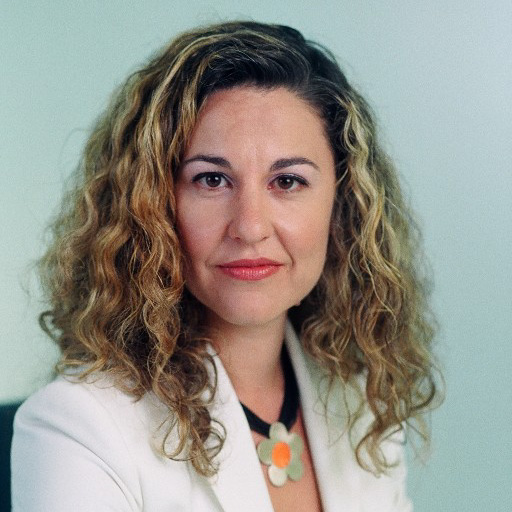
13:00-14:30 CET
Disruption forces us to become better managers
By Dr. Olga Epitropaki (Professor and Director of Research of the Management & Marketing Department, Durham University Business School)
Contents of the lecture
- How technology change disrupts management
- Disruptive threats & Opportunities for leaders
- Building adaptive and ambidextrous organizational forms
- Responsible leadership
Participants will:
- Clarify the indirect path by which technological change upends long-held management practices
- Understand the urgency, magnitude, and consequences of disruptive threats with examples from different industries
- Learn the principles of adaptive and responsible leadership and management which have become imperative for business survival and sustainability

14:30-15:30 CET
Covid 19: changing the engines on air!
By Ms. Stavroula Aggelopoulou(Corporate Responsibility Deputy Director, OTE Group)
Contents of the lecture
Sharing our story @ OTEGroup of how we managed to adjust to this abrupt disruption, with 80% of our employees in home office in just a few days, whilst at the same time providing telecom services to the whole country.

11:30-14:30 CET
Sustainable Finance and Banking: Reshaping Capitalism
By Dr. Jody Grewal (Assistant Professor, University of Toronto)
Contents of the lecture
- Sustainability and access to capital: Growth in sustainable, responsible or impact investments; Sustainability and cost of equity capital, access to finance, borrowing terms; Investor reactions to mandated sustainability reporting in the EU.
- Sustainability and capital market intermediaries: Financial analysts; Creditors; Auditors
- Financial Materiality of ESG: Sustainability Accounting Standards Board (SASB); Evaluation of ESG by rating agencies & data providers; Preventing greenwashing and signaling ESG commitments; The business case of ESG communication
Learning objectives
- How investments in sustainability improve firms’ access to capital.
- Information intermediaries take ESG into account in their investment recommendations.
- Effective communication to the allocators of capital within an organization.

14:30-15:30 CET
Mainstreaming ESG and Sustainable Finance: The Role of Stock Exchanges
By Ms. Tania Bizoumi (Sustainable Finance Consultant, Athens Stock Exchange)
Contents of the session
- Mobilization from stock exchanges through the UN Sustainable Stock Exchanges Initiative (SSE) to drive ESG transparency and performance in local capital markets.
- The growing importance of ESG in capital markets – global trends and practices.
- The Athens Stock Exchange ESG Reporting Guide as a tool to drive disclosure among listed companies.
- Key challenges that persist on the ESG front.
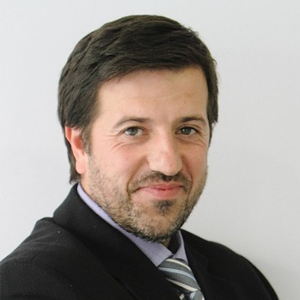
11:30-14:30 CET
CSR Reporting & Communication
By Dr. Pavlos A. Vlachos(Associate Professor, ALBA Graduate Business School at The American College of Greece)
Contents of the lecture
An introduction to standards and methodologies for measuring and reporting Corporate Social Performance/ESG (i.e., GRI, SASB, IIRC), third-party rating systems (B labs, MSCI, Thomson/Refinitiv, Truvalue Labs) and the latest academic findings on Corporate Social Performance/ESG reporting. We will also demonstrate the Truvalue Labs™ platform. Truvalue Labs™ is an awarded Fintech that applies Artificial Intelligence to massive volumes of unstructured data and scores firms on ESG behavior that has a material impact on company value. Finally students will play the Financial Times Trade-off game and will discuss the Danone (Integrated Report) case study.
Participants will:
- Describe the emerging third-party industry that rates firms’ Corporate Social Performance (CSP), and its role in rendering firms accountable for their social and environmental impact
- Review prominent CSP measurement and reporting schemes and key players promoting them
- Analyze how artificial intelligence facilitates CSP measurement and real-time firm accountability using behavioral data
- Identify the challenges in choosing and implementing a CSP measuring and reporting system
- Understand that in the domain of CSP, actions speak much louder than words; social impact reports should tell and not sell CSP and in turn not brag about (any measured) CSP leadership

14:30-15:30 CET
Non-Financial Reporting: The Interamerican Case
By Dr. Nickolas Angelopoulos (Corporate Social Responsibility Specialist & Public Affairs at INTERAMERICAN S.A.)
Contents of the lecture
- Company data
- CSR department in Interamerican and how it is structured
- The need of reporting
- The actual reporting process
- COVID actions during the reporting period

09:30-11:00, 12:00-13:30 CET
Do capital markets appraise corporate responsibility & sustainability?
By Dr. Panagiotis Avramidis(Associate Professor of Finance and Quantitative Methods, ALBA Graduate Business School at the American College of Greece)
Contents of the lecture
- The nuanced relationship between capital markets and CSR
- What capital markets like most from CSR?
- The recent shift in logics through the lenses of market mediators
- Have bond and equity markets different approach to CSR?
Participants will:
- Understand how financial markets view corporate responsibility & sustainability
- Critically reflect on the emergence of corporate responsibility
- Discuss the outcomes that different corporate responsibility actions may have on the firm’s cost of capital
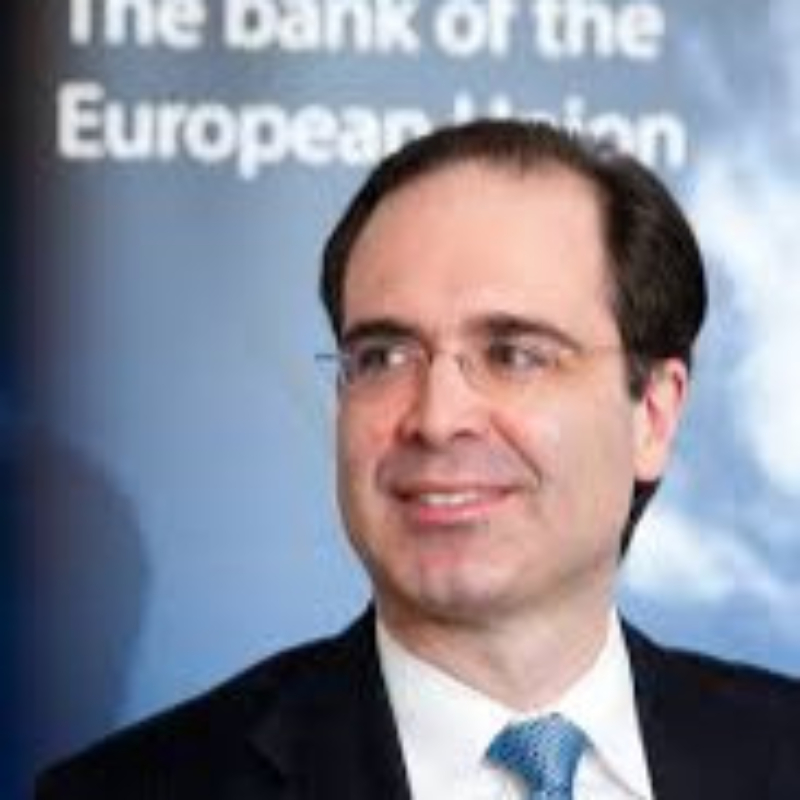
11:00-12:00 CET
CSR & Capital Markets: EIB Case Study
By Dr. Lucius Hakan (Head of Corporate Responsibility & Civil Society Division, European Investment Bank)
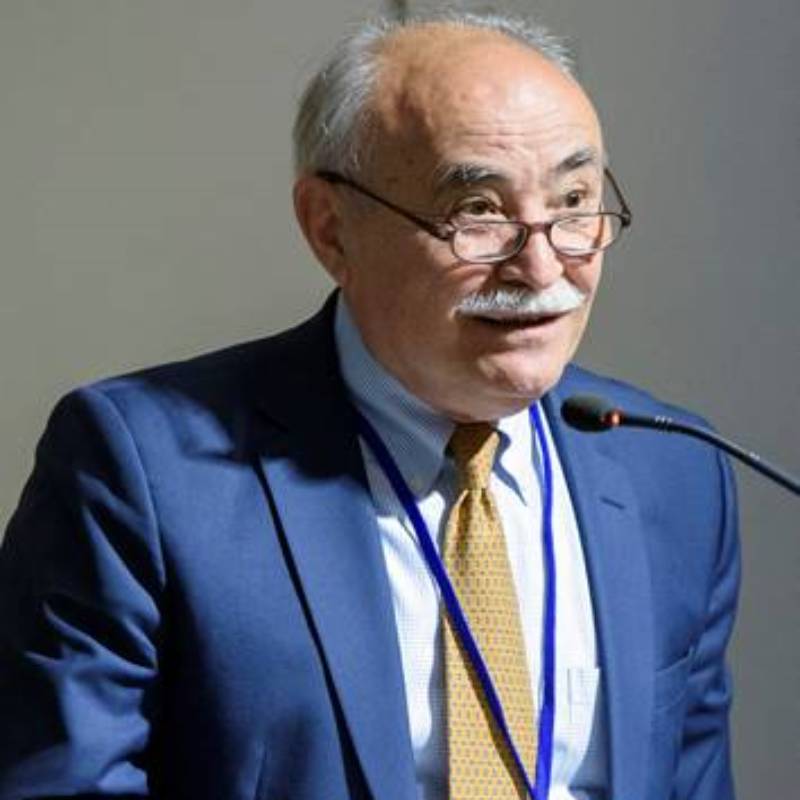
11:30-14:30 CET
CSR & Innovative Strategic Partnerships
By Dr. Djordjija Petkoski (Lecturer and Senior Fellow, Zicklin Center for Business Ethics Research, The Wharton School – University of Pennsylvania)
Topics of the lecture
- Why Innovative Strategic Partnerships? How to Navigate What’s Next: from Systems Change and Collective Impact to COVID and Post-COVID reality
- How to align private sector interest with public sector priorities?
- Partnerships that go beyond the traditional models of public-private partnerships; for example, partnerships with Competitors; Development
organizations; Donor agencies; Foundations; and NGOs - Innovative partnerships and finance: How to move from “billions” to “trillions” in investments for financing the SDGs?
- Strategic Collective Action: From project based to Long-term Initiatives
- The Challenge of Implementation and Leadership
Learning objectives
The participant will develop the capacity to integrate knowledge and to analyze, evaluate, and manage the different aspects of innovative strategic partnerships at an organizational, local, and global level. Based on the case studies analysis, the participants will be able to identify implementation and leadership challenges, evaluate problem-solving strategies, and develop science-based solutions.

14:30-15:30 CET
Building private-public partnerships to address social issues and SDGs at local level – The case of THE LAB in Kosovo by TITAN Cement International
By Ms. Maria Alexiou (Chair BoD, CSRHELLAS; BoD member, CSR Europe; ESG Senior Advisor, TITAN Cement Group)
The discussion of the LAB, a case study for the development of an innovative private – public partnership in Kosovo to address poverty, youth unemployment, as well as corporate social responsibility and accountability at local level was officially launched in 2014.
As it continues to evolve creating value for local stakeholders the LAB offers evidence to discuss and further analyze:
- What is a private-public partnership and how does it work?
- Why do we need PPPs to address social issues and enable transformation?
- How does THE LAB work?
- What are the results from THE LAB so far?
- How can we scale up, transfer know how and experience and increase the impact of our actions?
Who's Teaching
Tutors of the CSR School 2020

Dr. Djordjija Petkoski
Lecturer and Senior Fellow, Zicklin Center for Business Ethics Research, The Wharton School - University of Pennsylvania

Dr. Constantine Manasakis
Associate Professor, Political Science Dpt., University of Crete

Dr. Anne Touboulic
Associate Professor in Operations Management, Deputy Chair, Social Environmental Responsibility Group, PRME Lead, Nottingham University Business School

Dr. Pavlos A. Vlachos
Associate Professor of Marketing, ALBA Graduate Business School, The American College of Greece

Dr. Antonis Zorpas
Associate Professor, Open University of Cyprus
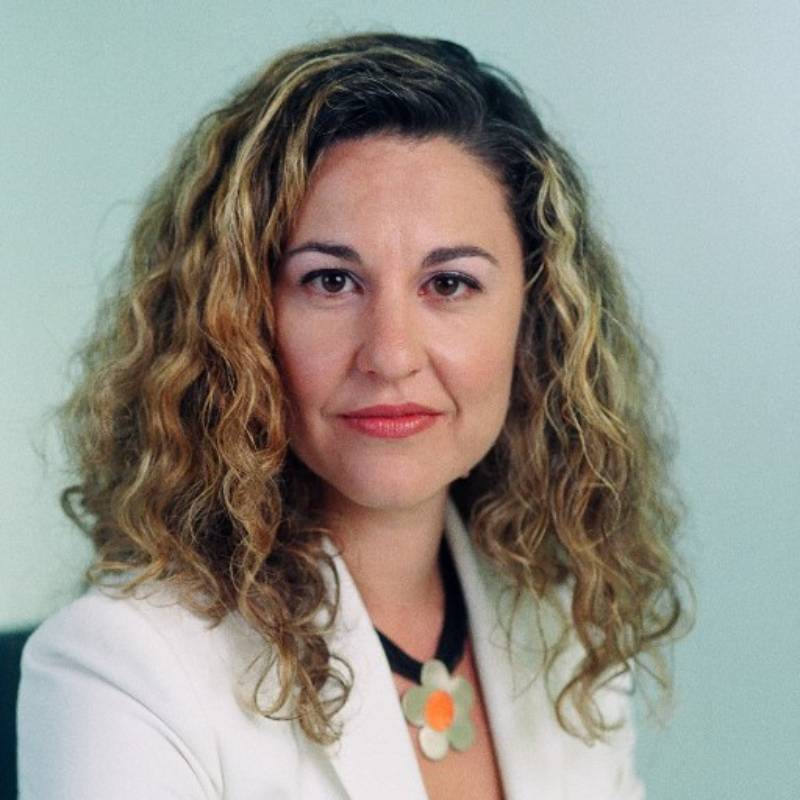
Dr. Olga Epitropaki
Professor and Director of Research of the Management & Marketing Department, Durham University Business School

Dr. Alexandros Antonaras
Associate Professor of Management and Vice President of Student Services, University of Nicosia
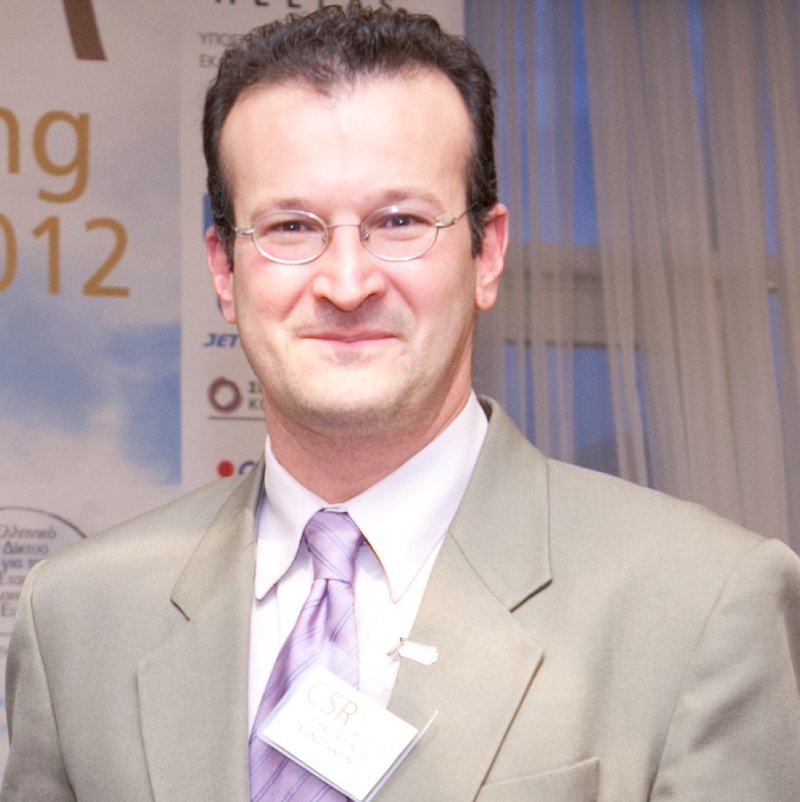
Dr. Konstantinos Evaggelinos
Senior University Researcher, Lecturer and Consultant, University of the Aegean

Dr. Dimitrios Koufopoulos
Director of the Online Global MBA Programmes, University of London

Dr. Haridimos Tsoukas
The Columbia Ship Management Professor of Strategic Management, University of Cyprus

Dr. Anastasios Stalikas
Professor of Psychology, Panteion University of Social & Political Sciences

Dr. Nikos Mylonopoulos
Associate Professor of Digital Business, ALBA Graduate Business School at the American College in Greece
Practitioners of the CSR School 2020
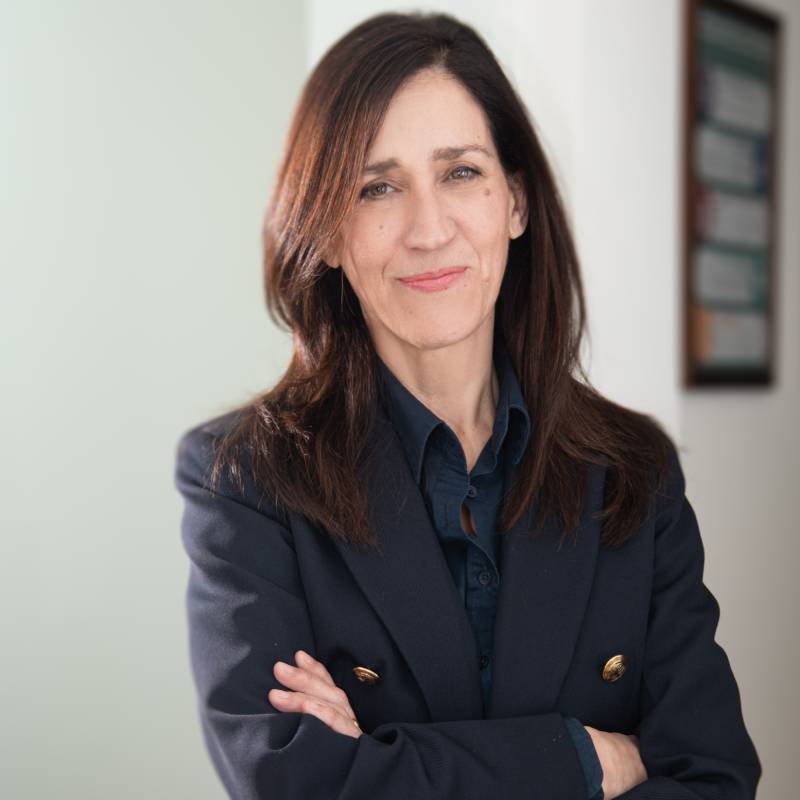
Ms. Maria Alexiou
Chair BoD, CSRHELLAS; BoD member, CSR Europe; ESG Senior Advisor, TITAN Cement Group; Member, PTF ESRS Secretariat, EFRAG
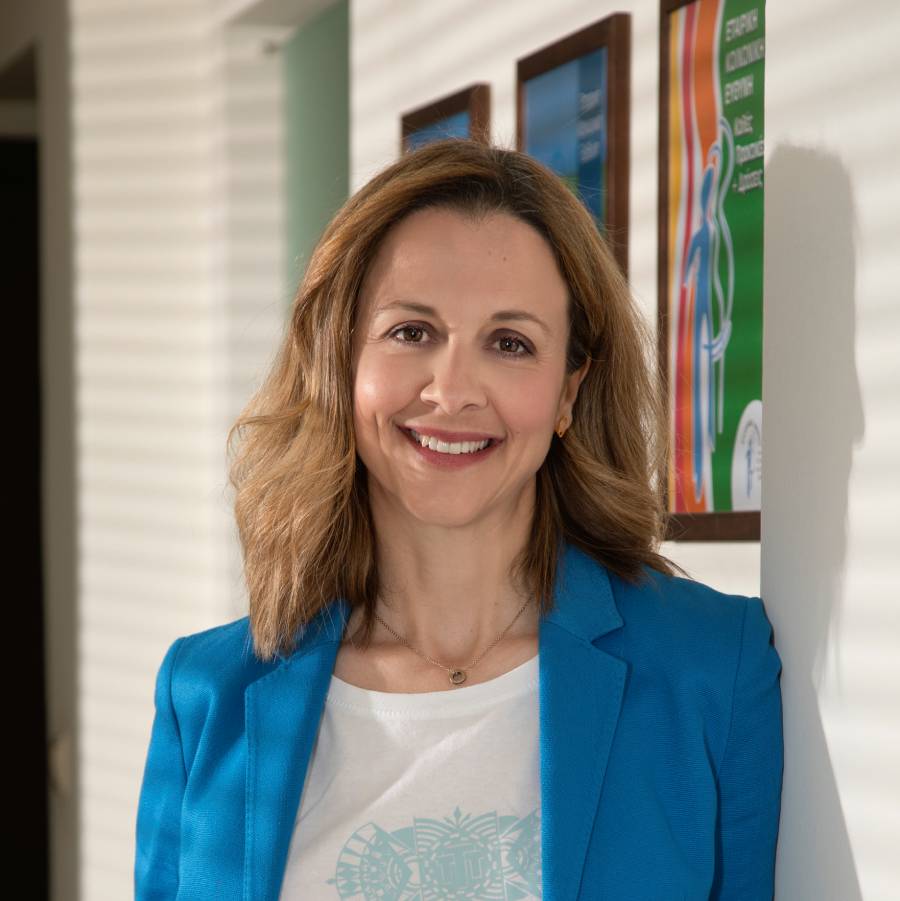
Ms. Stavroula Aggelopoulou
Sustainability & Corporate Responsibility Director, OTE Group

Mr. Nikos Koumaniotis
Senior Production Operations Manager, COFFEE ISLAND

Mr. Alexandros Kostopoulos
Sustainable Development Manager, MYTILINEOS

Mr. Anagnosti John Choukalas
Head of Sustainability of APIVITA & URIAGE, Derma Division, PUIG Group

Ms. Martha Mylona
Organizational Consultant, Executive & Leadership Coach, Mediator in the Workplace

Mr. Sotiris Pastras
Sustainability & Corporate Responsibility Manager, APIVITA

Ms. Angelika Tzemou
BoD Member & Head of HR, Bayer Greece

Mr. Konstantinos Giamalidis
Group Compliance & Anti-Fraud Director TITAN Cement Group, MA, CIA, CFE, CRMA

Mr. Ioannis Mastoris
Sustainability Integration Manager, TITAN

Mr. Athanasios Tzortzinis
ESG Officer, MYTILINEOS

Dr. Hakan Lucius
Head of Corporate Responsibility and Civil Society Division, European Investment Bank

Mr. Nathan Gilbert
Executive Director, B Lab Europe

Dr. Polydefkis Loukopoulos
Chairman and Managing Director, Signify Hellas S.A.

Dr. Nickolas Angelopoulos
Corporate Social Responsibility Specialist & Public Affairs, INTERAMERICAN S.A.

Mr. Henning Ohlsson
Director Sustainabilty Epson Europe / Managing Director Epson Deutschland GmbH

Ms. Katerina Katsouli
ESG & Sustainability Director of Grant Thornton Greece

Ms. Tania Bizoumi
Program Manager & Sustainable Finance Consultant, Athens Stock Exchange
Moderation & Administration of the CSR-School 2020
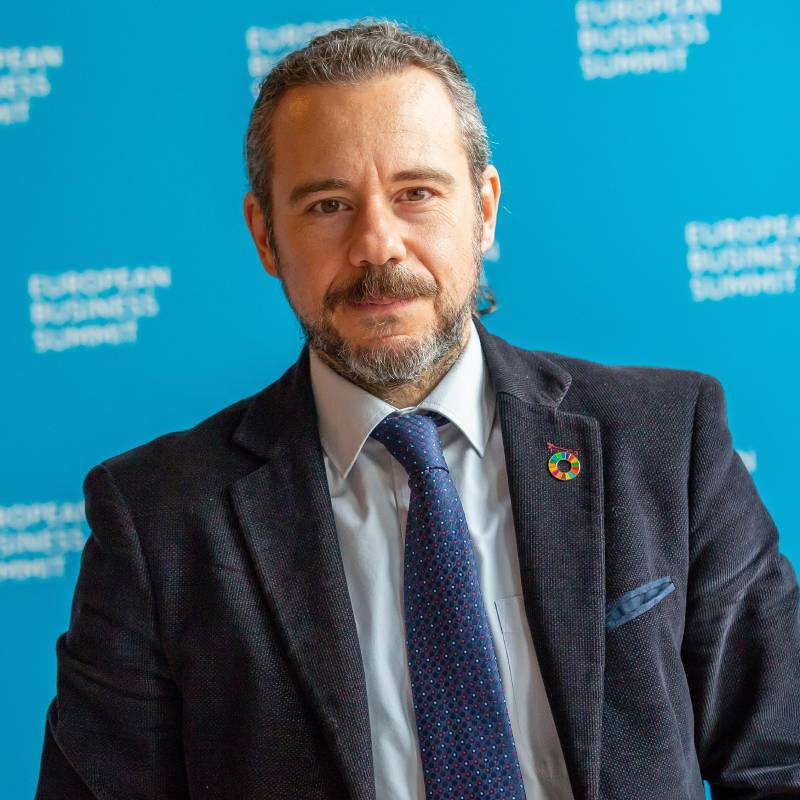
Mr. Alexandros Kostopoulos
Deputy Director, CSR HELLAS; BoD Member, CSR Europe


